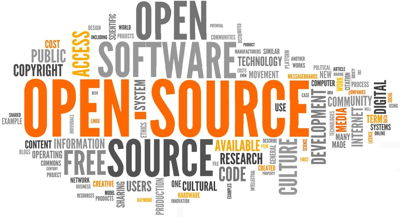What are distribution rules for Open Source Software?
Here, we discuss about the distribution rules for open source software and its meaning in detailed as follows.

Do you have similar website/ Product?
Show in this page just for only
$2 (for a month)

0/60
0/180
What are distribution rules for Open Source Software?
Before we start discussing about the distribution rules for Open Source Software, first understand what is Open Source Software?
Open source:

- Open source is a development method for software that harnesses the power of circulated review and transparency of process.
- The promise of open source is better quality, higher reliability, more flexibility, lower cost, and an end to predatory vendor lock-in.
- The Open Source Initiative (OSI) is a non-profit corporation formed to educate about and advocate for the benefits of open source and to build bridges among different constituencies in the open-source community.
- One of the most important activities is as a standards body, maintaining the Open Source Definition for the good of the community.
- The Open Source Initiative Approved Lincense trademark and program creates a nexus of trust around which developers, users, corporations and governments can organize open-source cooperation.
(1) Free Redistribution:
- One of the rules for Open Source Software is that its license does not restrict any party or person from selling or giving away the software as a component of an aggregate software distribution containing programs from several different sources.
- Its license does not require a royalty or other fee with a sale.
- The license allows all kinds of changes and amendment on the existing and present work.
- The rule is that it must allow distributing the new software to be built under the same terms as the license of the original software.
- Work that is based on one or more pre-existing works constitutes a derivative work to the extent that the new material added constitues an original work of authorship.
- Such new material may include editorial revisions, annotations, elaborations or other modifications.
- Thus making sure that the work or software created and derived after modifying is easier to understand and user friendly.
- Users must be allowed to edit the source code to either improve the software or create a derived work, and should be permitted to distribute the result of their work.
- The distribution of modified source code must be allowed along with restrictions to ensure the possibilities to differentiate the original source code from the derived works.
- Changes to source code must be clearly distinguished from the work of the original author.
- This provision protects the authors from gaining a negative reputation from the problems of changes that others have made to their work.
- Another distribution rule of Open Source Software is that there is availability of the source code.
- All the programs include source code, and distribution in source code as well as compiled from. In some instances some form of a product is not distributed with source code, there would be a well-publicized means of obtaining the source code for no more than a reasonable reproduction cost preferably downloading via the Internet without any extra charge.
- The source code must be the preferred form in which a programmer would modify the program.
- The rights attached to any program or software must apply to all to whom the program is redistributed without the need for execution of an additional license by those parties.
- The rights attached to the program must not depend on the program's being part of a particular software distribution. If the program is extracted from that distribution and used or distributed within the terms of the program's license, all parties to whom the program is redistributed should have the same rights as those that are granted in conjunction with the original software distribution.
- License must not contaminate other software. The license must not place restrictions on other software that is distributed along with the licensed software.
- The license must not place restrictions on other software that is distributed along with the licensed software. For example - the license must not insist that all other programs distributed on the same medium must be open source software. No provision of the license may be predicated on any individual technology or style of interface.
- The license must be able to be legally distributed along with the sofware itself. For e.g. the Linux kernel is published under the GNU General Public License (GPL), which is the most popular. If an end-user changes the source code of the Linux kernel, he should be, and is, permitted to use the same license for his derived work.
- The rights attached to the program must apply to all to whom the program is redistributed without the need for execution of an additional license by those parties. The license must not discriminate against any person or group of persons. The author of an open source application may not stop any particular person or group from using their software.
- The license must not restrict anyone from making use of the program in a specific field of endeavor.
- For e.g., it may not restrict the program from being used in a business, or from being used for genetic research. The software must allow use in both a business and a school.
CONTINUE READING
Distribution rules for Open Source Software
Free Redistribution
Licensing policy
Allowing to modify
No discrimination
Integrity
Information Technology - Distribution rules for Open Source Software.
Kinnari
Tech writer at NewsandStory
